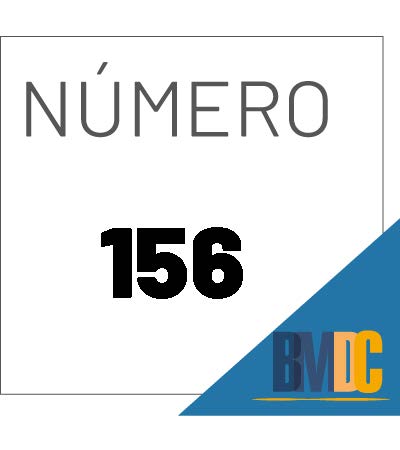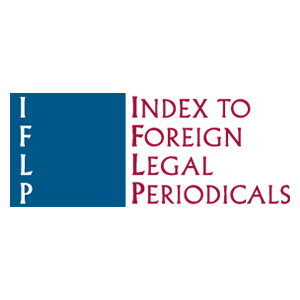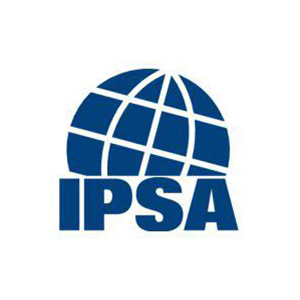When Corruption is Cultural: Exploring Moral, Institutional and Rule-Based Concepts of Corruption
Contenido principal del artículo
Resumen
It is often asserted that people are conditioned to act corruptly by their culture in a way they cannot help themselves. The aim of this paper is to use a multidisciplinary approach, both from political theory and political science, to show that this kind of narrative about corruption is flawed because it is not informative at all about the nature of corruption. This prevents it from leading to any type of meaningful analysis or policy design. We will concentrate on two main flaws: The Triviality Objection, which points out that everything humans do is cultural in some sense or other, and the Circularity Objection, which stresses that attempting to explain why or how corruption becomes part of a specific culture, leads to saying that it is because its members act corruptly. The idea that the cultural causation is flawed becomes persuasive when we contrast that view with our concept of corruption as a special kind of harm to institutional rules: corruption may refer to a parallel set of conventions or rules that undermines the institutional set of morally justified norms.
Detalles del artículo
Uso de licencias Creative Commons (CC)
Todos los textos publicados por el Boletín Mexicano de Derecho Comparado sin excepción, se distribuyen amparados con la licencia CC-BY 4.0 Internacional, que permite a terceros utilizar lo publicado, siempre que mencionen la autoría del trabajo y la primera publicación en esta revista.
Derechos de autoras o autores
De acuerdo con la legislación vigente de derechos de autor el Boletín Mexicano de Derecho Comparado reconoce y respeta el derecho moral de las autoras o autores, así como la titularidad del derecho patrimonial, el cual será transferido –de forma no exclusiva– al Boletín para permitir su difusión legal en acceso abierto.
Autoras o autores pueden realizar otros acuerdos contractuales independientes y adicionales para la distribución no exclusiva de la versión del artículo publicado en el Boletín Mexicano de Derecho Comparado (por ejemplo, incluirlo en un repositorio institucional o darlo a conocer en otros medios en papel o electrónicos), siempre que se indique clara y explícitamente que el trabajo se publicó por primera vez en este Boletín.
Para todo lo anterior, deben remitir la carta de transmisión de derechos patrimoniales de la primera publicación, debidamente requisitada y firmada por las autoras o autores. Este formato debe ser remitido en PDF a través de la plataforma OJS.
Derechos de lectoras o lectores
Con base en los principios de acceso abierto las lectoras o lectores de la revista tienen derecho a la libre lectura, impresión y distribución de los contenidos del Boletín por cualquier medio, de manera inmediata a la publicación en línea de los contenidos. El único requisito para esto es que siempre se indique clara y explícitamente que el trabajo se publicó por primera vez en el Boletín Mexicano de Derecho Comparado y se cite de manera correcta la fuente y el DOI correspondiente.
Citas
AKANJI, Babatunde. 2017. “The Relationship between Culture and Corruption in Nigeria – Prospecting Culture Change in Dealing with this ‘Big Black Hole”. Romanian Economic Journal 63(3).
BEEZLEY, William. 2009. “The Role of the State Governors in the Mexican Revolution”. In State Governors in the Mexican Revolution, 1910-1952: Portraits in Conflict, Courage, and Corruption, eds. J. BUCHENAU & W. BEEZLEY. Plymouth, UK: Rowman & Littlefield.
BRATTON, Michael. 2007. “The Democracy Barometers (part 1): Formal versus Informal Institutions in Africa”. Journal of Democracy 3(18).
BRATU, Roxana et al. 2017. “Through the Lens of Social Constructionism: The Development of Innovative Anti-Corruption Policies and Practices in Bulgaria, Greece and Romania, 2000-2015”. The Slavonic and East European Review 1(95).
CAMACHO, Enrique and GARCÍA, Francisco. 2019. “El concepto de co-rrupción y el pacto constitucional mexicano”. En Los derechos sociales en México. Reflexiones sobre la Constitución de 1917. Querétaro: Instituto de Estudios Constitucionales de Querétaro.
CASTRO, Pedro. 2004. “Álvaro Obregón, el último caudillo”. Polis 2(3).
CASSIRER, Ernst. 1977. An Essay on Man: An Introduction to a Philosophy of Human Culture. New Haven: Yale University Press.
COSSÍO, José. 1998. Dogmática constitucional y régimen autoritario. México: Fontamara.
CRUZ, Juan. 2000. “Los derechos sociales como técnica de protección jurídica”. En Derechos sociales y derechos de las minorías, comps. M. CARBONELL et al. México: UNAM.
DALTON, Mary. 2005. “Corruption in cultural context: Contradictions within the Korean tradition”. Crime, Law and Social Change 4-5(43).
DANCY, Jonathan. 2017. “Moral Particularism”, The Stanford Encyclopedia of Philosophy, disponible en: https://plato.stanford.edu/archives/win2017/entries/moral-particularism/.
DÍAZ Y DÍAZ, Martín. 1997. “La Constitución ambivalente. Notas para un análisis de sus polos de tensión”. En 80 aniversario. Homenaje. Constitución Política de los Estados Unidos Mexicanos. Mexico: UNAM, Instituto de Investigaciones Jurídicas.
ESTÉVEZ, Ariadna. 2007. “Transición a la democracia y derechos humanos en México: la pérdida de integralidad en el discurso”. Andamios 6(3).
FELSON, Marcus. 2011. “Corruption in the Broad Sweep of History,” Handbook of Global Research and Practice in Corruption. Massachusetts: Edward Elgar.
FOUCAULT, Michel, and EWALD, François. 2003. Society Must Be Defended: Lectures at the Collège de France, 1975-1976, vol. 1. New York: MacMillan.
GADAMER, Hans-Georg. 1989. Truth and Method. Nueva York: Crossroad Publishing.
HACKING, Ian. 1999. The Social Construction of What? United States: Harvard University Press.
HASLANGER, Sally. 2012. Resisting Reality: Social Construction and Social Critique. United States: Oxford University Press.
HODGSON, Geoffrey and JIANG, Shuxia. 2007. “The Economics of Corruption and the Corruption of Economics: An Institutionalist Perspective”. Journal of Economic Issues 4(41).
HODGSON, Geoffrey. 2008a. “What Are Institutions?” Journal of Economic Issues 1(40).
LAMBSDORFF, Johann. 2003. “How Corruption Affects Productivity”. Kyklos 4(56).
LINDSAY, Jay. 2006. “6 Arrested in Boston Big Dig Investigation”. Disponible en: http://www.washingtonpost.com/wp-dyn/content/article/2006/ 05/04/AR2006050400693.html.
LITTLE, Daniel.1994. Varieties of Social Explanation: An Introduction to the Philosophy of Social Science. Reino Unido: Routledge.
MARMOR, Andrei.2010. Philosophy of Law, Princeton: Princeton University Press.
MILLER, David.1995. On Nationality. Oxford: Clarendon Press.
MILLER, Seumas. 2010. The Moral Foundations of Social Institutions: A Philosophical Study. New York: Cambridge University Press.
OPPENHEIM, Maya. 2017. “Donald Trump’s son says nepotism ‘a factor of life’”. The Independent, 5 April, disponible en: http://www.independent.co.uk/news/world/americas/eric-trump-nepotism-factor-of-life-forbes-trump-tower-ivanka-trump-a7667891.html.
PERSSON, Anna et al. 2012. “Why anticorruption reforms fail – Systemic corruption as a collective action problem”. Governance 3(26).
PHILP, Mark. 2006. “Corruption Definition and Measurement”. In Measuring Corruption, eds. Charles SAMPFORD et al. Surrey, UK: Ashgate
Proceso. 2005. “Aprueba SCJN veto presidencial al Presupuesto”. Proceso, disponible en: http://www.proceso.com.mx/226957/aprueba-scjn-veto-presidencial-al-presupuesto.
RAWLS, John, 1999. A Theory of Justice. Oxford: Oxford University Press.
RAWLS, John. 2000. Political Liberalism. New York: Columbia University Press.
SERRANO, Fernando. 2007. Facultades Metaconstitucionales del Poder Ejecutivo en México. Mexico: UNAM.
SHAPIRO, Scott. 2009. What is the Rule of Recognition (and does it exist)? Research Paper. No. 181.
SLEAT, Matt. 2015. “Justice and Legitimacy in Contemporary Liberal Thought”. Social Theory and Practice 2(41).
STEWART, Jenny. 1993. “Rational choice theory, public policy and the liberal state”. Policy Sciences 4(26).
TRUMP, Ivanka. 2009. The Trump Card: Playing to Win in Work and Life. New York: Touchstone.
UGALDE, Luis. 2014. La negociación política del presupuesto en México, 1997-2012. Mexico: Integralia.
VALENCIA, Sayak. 2010. Capitalismo Gore. Barcelona: Melusina.
VALENTINI, Laura. 2012. “Ideal vs. Non‐ideal Theory: A Conceptual Map”, Philosophy Compass 9(7).
WILLIAMS, Bernard. 2005. In the Beginning was the Deed: Realism and Moralism in Political Argument. Princeton: Princeton University Press.
YAMASHIRO, Celina. 2013. “Autopista del sol, una obra con 20 años de derrumbes”, disponible en: http://www.obrasweb.mx/construccion/2013/09/20/autopista-del-sol-una-obra-con-20-anos-de-derrumbes.
YPI, Lea. 2012. Global Justice and Avant-Garde Political Agency. Oxford: Oxford University Press.























